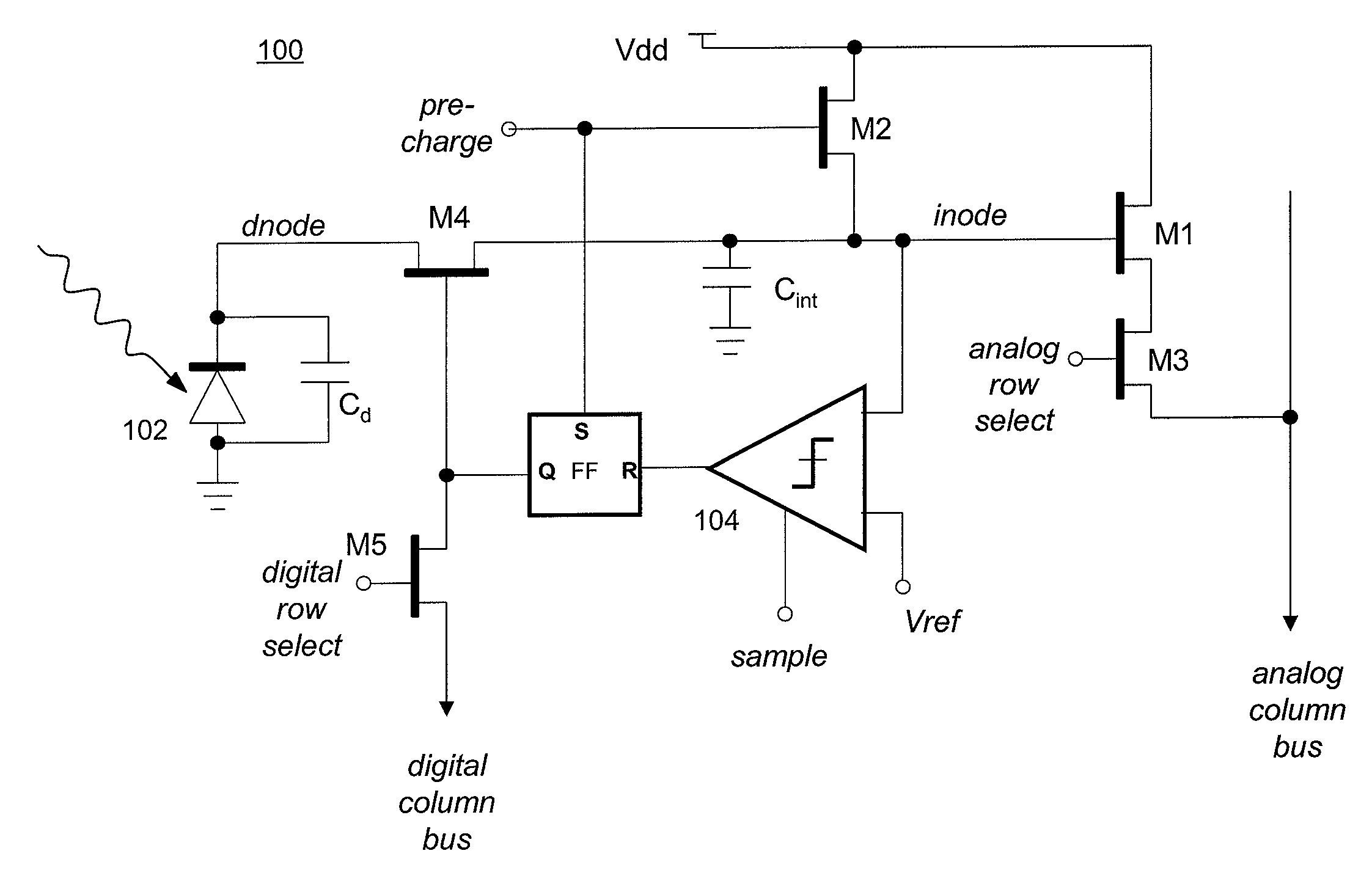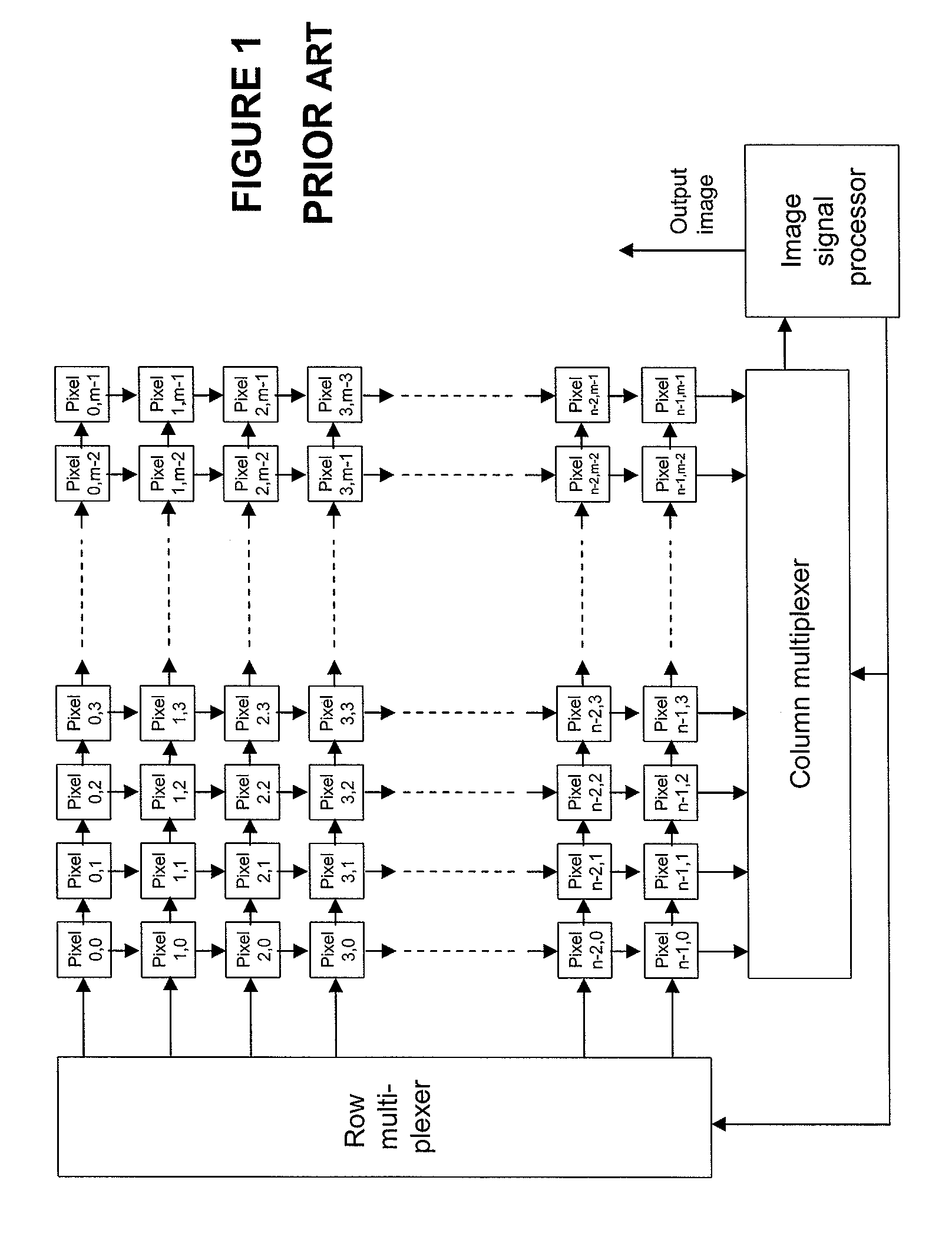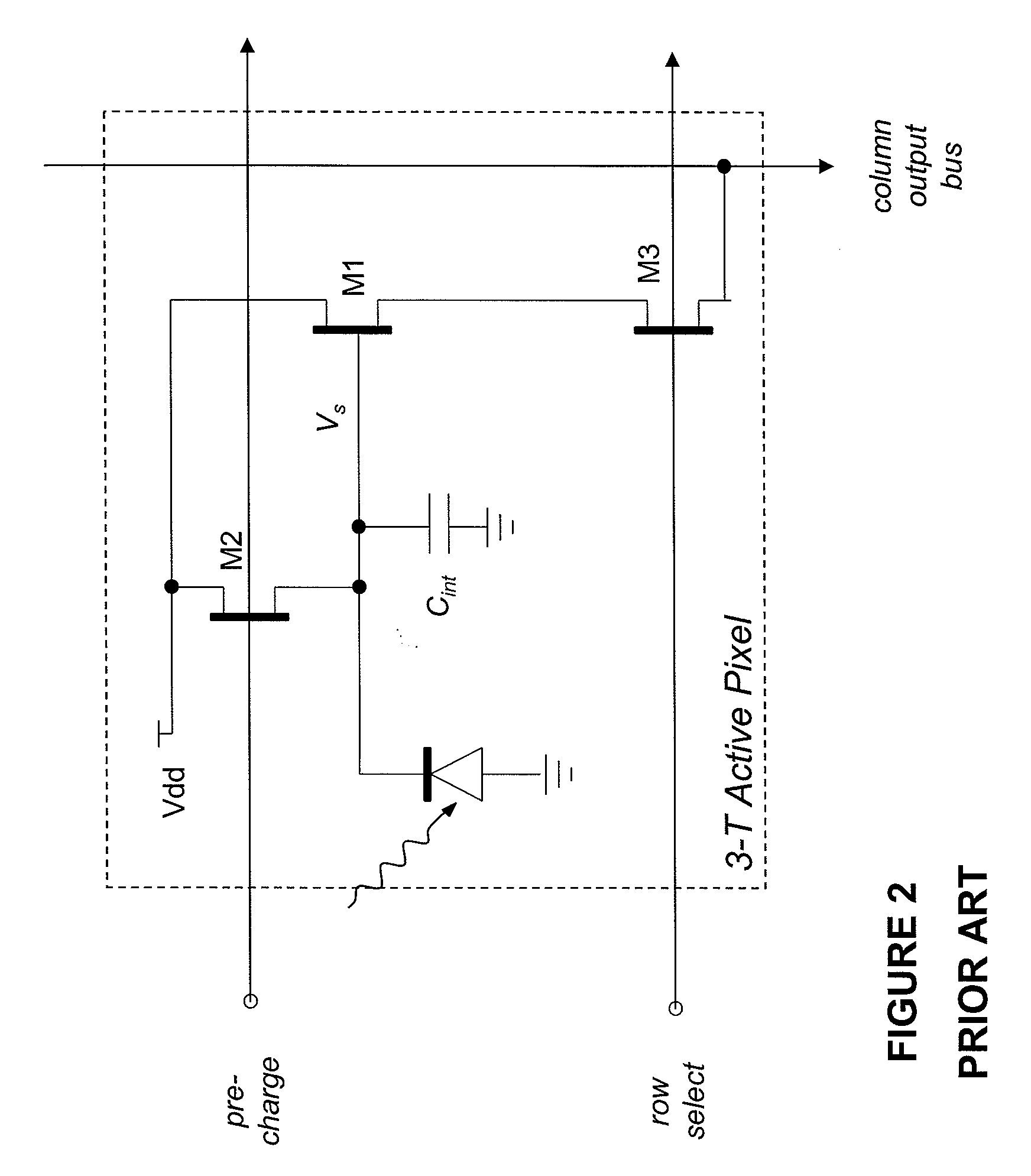Mixed analog and digital pixel for high dynamic range readout
a technology of high dynamic range, which is applied in the field of improved cmos imaging sensors having mixed analog and digital pixel readout, can solve the problems of limited maximum optical signal that a pixel can detect, unsuitable, and inability to improve the ability of imagers to capture very bright and very dark objects in the same scene, so as to achieve the effect of large pixel dynamic range without compromising low-light performan
- Summary
- Abstract
- Description
- Claims
- Application Information
AI Technical Summary
Benefits of technology
Problems solved by technology
Method used
Image
Examples
Embodiment Construction
[0035]The following detailed description illustrates the invention by way of example and not by way of limitation. The description enables one skilled in the art to make and use the invention, and describes several embodiments, adaptations, variations, alternatives, and uses of the invention, including what is presently believed to be the best mode of carrying out the invention.
[0036]In general, an improved CMOS pixel of the present invention utilizes a combination of analog and digital readout to provide a large pixel dynamic range without compromising low-light performance using a comparator to test the value of accumulated charge at a series of exponentially increasing exposure times. Analog to digital conversion is not performed within the pixel. The test is used to stop the integration of photocurrent once the accumulated analog voltage has reached a predetermined threshold. The one-bit output value of the test is read out of the pixel (digitally) at each of the exponentially i...
PUM
 Login to View More
Login to View More Abstract
Description
Claims
Application Information
 Login to View More
Login to View More - R&D
- Intellectual Property
- Life Sciences
- Materials
- Tech Scout
- Unparalleled Data Quality
- Higher Quality Content
- 60% Fewer Hallucinations
Browse by: Latest US Patents, China's latest patents, Technical Efficacy Thesaurus, Application Domain, Technology Topic, Popular Technical Reports.
© 2025 PatSnap. All rights reserved.Legal|Privacy policy|Modern Slavery Act Transparency Statement|Sitemap|About US| Contact US: help@patsnap.com



